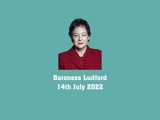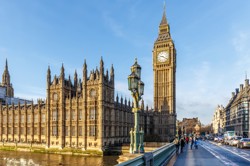House of Lords Debate: Amplifying the Voices of People with Lived Experience of Using the Human Rights Act
In June 2022, the UK Government announced a Bill of Rights Bill, better known as a Rights Removal Bill, to replace the Human Rights Act. We have lots of concerns about this, which you can read about on our Rights Removal Bill hub.
Often discussions about the impact of the Human Rights Act focus on how it is used in the courts. At BIHR, we see the value of the Human Rights Act every day in our work with people accessing services, community and advocacy groups and staff working in public services. You can read some real life stories of change here. Throughout our work, and discussions about the Human Rights Act and the Rights Removal Bill, we want to ensure that the voices of lived experience are amplified. Listening to these voices is the only way to understand the importance of the Human Rights Act in securing human rights every day across the UK. Find out how we are doing this through our RITES Committee.
We were therefore pleased to hear that Baroness Whitaker scheduled a debate in the House of Lords on the practical impact of the Human Rights Act which took place on 14th July 2022.
What did we do?
We wanted to make sure that when the House of Lords debated the impact of the Human Rights Act they would be able to reflect on the importance of how the Human Rights Act is used every day, outside of the courtrooms.
We therefore created a briefing on the practical impact of the Human Rights Act, including stories from the people, community groups and staff we work with. You can read our full briefing on the Human Rights Act in practice. We sent this briefing to Peers in the House of Lords ahead of the debate.
What was the outcome?
We were pleased to see that the House of Lords debate amplified the voices of people with lived experience, people who are often excluded from conversations like these. A number of Peers also echoed our concerns about the proposals in the Rights Removal Bill.

Baroness Whitaker began by speaking about why it is important to consider the practical impact of the Human Rights Act
Baroness Whitaker also spoke about how the main impact of Human Rights Act is outside of the courtroom, through staff in public bodies considering the human rights of the people they work with. Finally, Baroness Whitaker mentioned some ideas which are crucial to the rule of law; that we should be able to understand what we are entitled to under the law.


Baroness Warwick spoke about the universality of human rights. The Rights Removal Bill seeks to change this, by seeking to create different categories of people: those who are entitled to have full remedies for human rights breaches by the Government and public bodies, and those who are not. You can read more about this in our Damages Need-to-Know.
Baroness Ludford also spoke about universality and discussed how the narrative around the Human Rights Act and the European Convention of Human Rights often undermines this. She raised concerns about the impact of the Rights Removal Bill on positive obligations. Read our concerns on limiting positive obligations in our Need-to-Know Guide.


She also shared Kirsten’s story of how she used the Human Rights Act to challenge the treatment of her son in mental health hospitals. Kirsten is a member of our RITES Committee You can hear Baroness Ludford talk about Kirsten’s story in the clip below.
Baroness Donaghy shared an important quote about the reality of the Human Rights Act and who it matters to.


Lord Cashman spoke about the importance of Human Rights for LGBTQ+ people and the dangers of the Rights Removal Bill.
The Lord Bishop of St Albans shared his concerns about the impact of the Rights Removal Bill on refugees, mentioning the recent Rwanda case. Read more about interim measures and the Rwanda policy.


Baroness Chakrabarti spoke about why the Human Rights Act is important and how it preserves parliamentary sovereignty.
Baroness Chakrabarti also highlighted why Section 2 and Section 19 of the Human Rights Act are necessary. The Rights Removal Bill would remove these duties. Read our concerns about removing Section 2 in our Need-to-Know Guide.


Baroness Kennedy discussed the UK Government's steps to reduce accountability and restrict the power of the courts with the Rights Removal Bill. Our CEO, Sanchita, raised similar concerns and Baroness Kennedy was one of our experts at our Ask the Experts event earlier this year.
Lord Etherton spoke about the importance of Section 6 of the Human Rights Act in bringing rights home and building a culture of human rights.


Lord Morgan raised concerns about how the Rights Removal Bill will impact devolved nations. Last month, we were part of a joint statement coordinated by Human Rights Consortium Scotland saying no to the Rights Removal Bill - alongside 125 organisations and experts from across the devolved nations.
Lord Foulkes spoke about the importance of the right to private and family life, in particular for asylum seekers. Read more about this in our Article 8 briefing and in our Need-to-Know Guide to Article 8. He also raised concerns about the addition of a permissions stage. Read more about this in our Need-to-Know Guide to limiting access to justice.


Lord Bellamy praised the work of BIHR, in contributing to building a culture of human rights.
Finally, Lord Carlile made this promise:
If that Bill is ever debated in this House, the Government will face a serious fight.

The impact
Through our briefing amplifying lived experience, we were able to create space in discussions which are often academic and legalistic for the importance of the Human Rights Act in people’s lives every day. Our briefing allowed the voices of people who use the Human Rights Act outside of the courtrooms to be heard by the House of Lords.
During the debate, the majority of Peers understood the importance of the Human Rights Act in practice. If the House of Lords can see the value of the practical impact of the Human Rights Act, at BIHR we hope this means they will fight any attempts to replace our Human Rights Act and reduce our rights protection. The Rights Removal Bill will impact us all, in every daily interaction with public bodies. It will impact every person who works for a public body and just want to do their job to help people. We know that the Human Rights Act is important and we were glad to see that recognised in Baroness Whitaker's debate in the House of Lords.
We were delighted to receive such positive feedback on the impact of our briefing from Peers.
Stay up-to-date
Get our newsletter
Get monthly updates on UK human rights law and our work, resources and events sent straight to your inbox.



